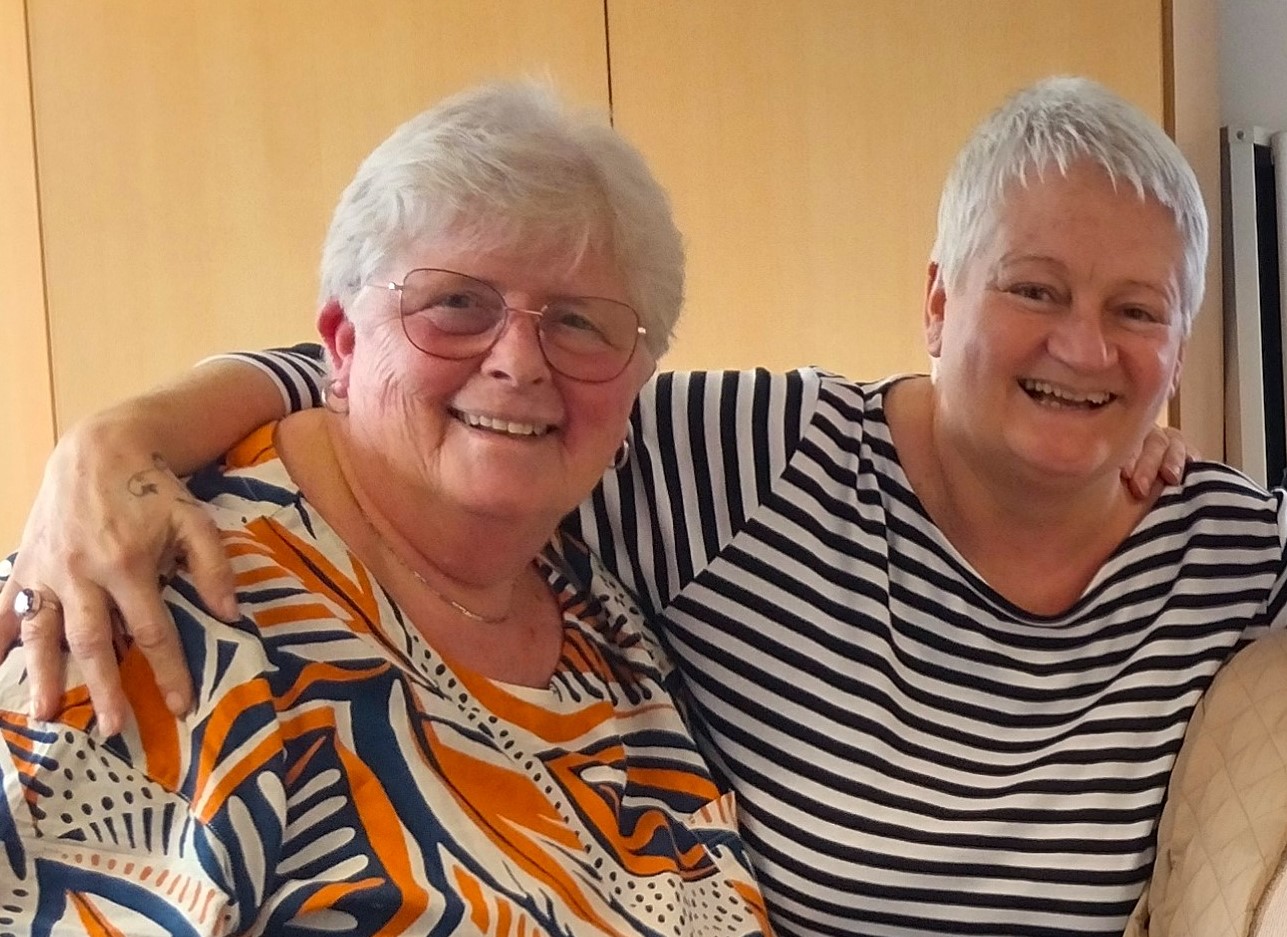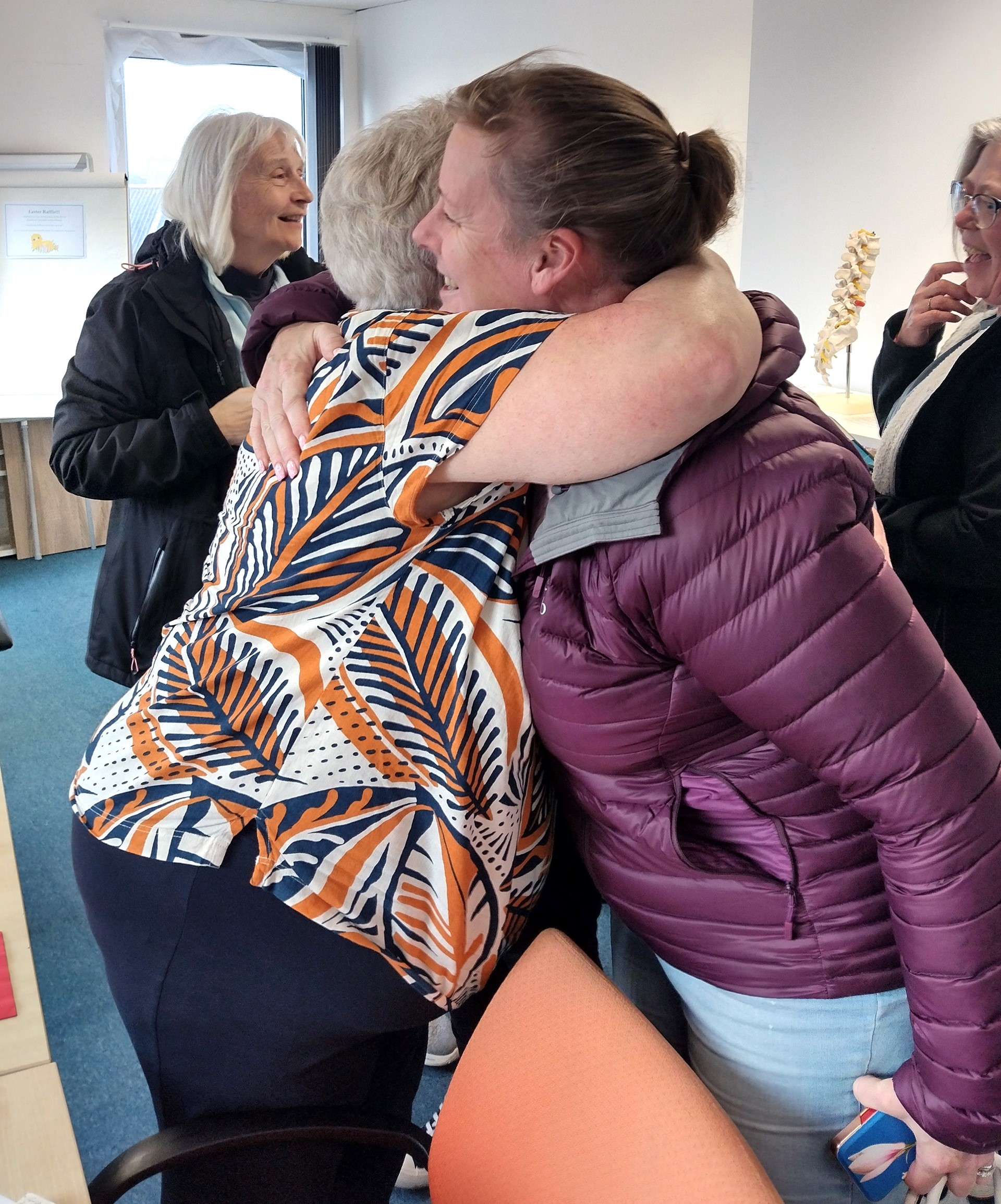Dementia Talk in our office by Alzheimer's ambassador Chris Maddocks
We were proud to have a fantastic guest last week, speaking to us of her experiences as a person living with dementia

Published: 27/03/2024
Dementia Talk in our office by Alzheimer’s ambassador Chris Maddocks
On Friday the 15th of March, we had the pleasure of welcoming a bona fide star in the office: Chris Maddocks, ambassador for Alzheimer’s Organisation and founding member of Sea DEEP, the Eastbourne chapter of DEEP (Dementia Engagement and Empowerment Project).
Since being diagnosed with young-onset vascular dementia in 2016 at the age of 60 after a series of minor strokes, and later with Parkinson’s and Lewy Body dementia, Chris has become a tireless campaigner for raising awareness about the real lived experienced of people with dementia. Her involvement with the Alzheimer’s Society began not long after her first diagnosis, and she is now a regular speaker at their national conferences. She co-produced the society’s Bring Dementia Out initiative, which received a People Award for helping LGBT+ people access and benefit from dementia awareness and services, and she has chaired the National Dementia Action Alliance. In October 2022, she was joint winner of the 12th National Dementia Care Awards for Exceptional Contribution by Person Living with Dementia. The same month, she was appointed to the Alzheimer’s Society Board of Trustees; the first ever person living with dementia to join the board.
So to say that we were chuffed to have her visit us is an understatement – the training room was cleaned until it sparkled, the PPE shelves had been tidied up, there was a tray of dark chocolate teacakes, and the seagulls who nest on the roof opposite kept their peace for once!
A start, a middle, and an end
With warmth and humour, Chris described her experiences within the health care system; sometimes good, sometimes not so good. She pointed out that many people, when they hear that you have dementia, jump straight to the end bit where the dementia is at an advanced stage, and forget about the stages in between. This means that they are more likely to make misguided assumptions about the person and draw conclusions that are wrong and in worst case harmful. As Chris said, “there is a start, a middle, and an end”. The only way to find out how dementia affects a person is to ask them.
“Just ask me”
Taking the time to understand each Client’s individual situation is fundamental to the care we deliver, and we know that everyone with dementia has a unique story to tell.
As a home care company, we are continuously involved with clients with various types of dementias, presenting at different stages, with a broad variety of symptoms, and sometimes with several comorbidities.
Finding out about the person can be a bit of a puzzle, where we try to piece together information from family, friends, other health care professionals and even clues in their surroundings. Sometimes, there is very little to go on at all.
This can be for many reasons: people can be in denial about their dementia, or maybe they don’t want to upset family members who are in denial. Perhaps they have not yet received a diagnosis or are afraid of getting one, preferring to carry on as normal. And sometimes, support and care are only accessed at a point where it is too late to ask those important questions.
Meeting with Chris was therefore an invaluable experience for us. A clear and articulate communicator, she described the frustrations and limitations caused by her dementia and answered the long list of questions we had.
Our office team and carers came away with a deeper understanding and new perspective, and it’s a miracle that we only finished an hour later than we had planned – really, we could have made it a whole day event. Having the chance to speak with someone so open, honest, and keen to educate is a rare thing, and we would recommend anyone who can to seek out Chris’s talks and blogs online.
Thank you to Chris and Heather for making time to visit us.

